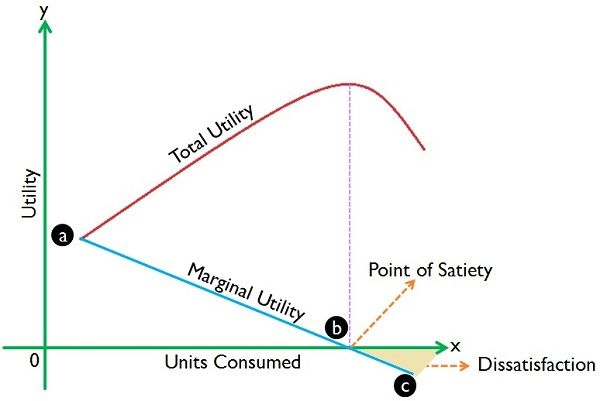Measuring Happiness
Near the beginning of the year, one of the key concepts that we learned about was the idea of utility, which is used as a measure for the perceived happiness that one may receive from a certain product or experience. This then ties into the idea of marginal utility and that increased consumption leads to diminishing returns on expected utility. The idea of utility is integral to economic theory because it dictates what and how much consumers are willing to consume - and thus dictates the demand aspect of supply and demand.
But exactly how does one determine the expected utility of a certain product or experience? The ultimate answer is that, well, you really can't. While you may be able to determine that something will make you feel happy, it is hard to specify the exact extent to which you will feel happy. This is why marginal utility plays such a large role in people's everyday lives. While you can't express expected utility in quantitative data, you can express it in qualitative data by comparing it to other things you may consume. For example, one might not be able to explain to their parents the exact reason(s) why they chose to procrastinate instead of finishing their homework on time; rather it was their abstract perception of achievable utility at the time that drove their decisions.
However, when it comes down to it a lot of economics is based on theory. While economics is based on the idea of studying human behavior, this does not mean it is always seen in real life. Let's tie this back into what we learned at the beginning of the year. Remember those T-Charts where we tried to determine the maximum utility possible based on a given budget? When was the last time you sat down to try this yourself? Most likely, not ever. Because there is a seemingly exponential growth in the number of combinations as you increase the number of different products/experiences, it is near impossible to determine which combination maximizes your utility. At the same time, because combinations do matter, it depends on how each product/experience compares to the other items considered in the combination. Although utility cannot be precisely measured, ultimately it is a better tool for measuring demand than the price people are willing to buy, mostly because the value of a dollar is not constant among all people.
How has the concept of utility applied to your life? Do you think that the idea of marginal utility is practical enough to apply to real life or does it mostly belong in theory?
https://patrickjuli.us/2015/01/05/how-do-we-measure-happiness/
https://www.economicshelp.org/blog/26659/economics/happiness-economics/


Interesting post Matthew! I think the whole idea of marginal utility is really interesting at least in regards to happiness or satisfaction because these are completely arbitrary and subjective. Nonetheless, I find it intriguing that economists are able to match these arbitrary measures with things like marginal utility and utils. In fact, I went and did some more research and found that economists went as far as to define a measure known as a "util" which is a completely hypothetical measure word for how much utility someone receives.
ReplyDeletehttp://www.amosweb.com/cgi-bin/awb_nav.pl?s=wpd&c=dsp&k=util
Great post! I have to agree with Andrew in that I find it interesting that happiness is a subject economists attempt to tackle and find measurements for. I also like how you asked the readers a couple of questions towards the end! Personally, I think that there is no harm in applying it to real life, however, you cannot fit all that makes you happy in life into this format therefore I think it's more successful as a theory.
ReplyDeleteAmazing post! The topic of utility in economics has definitely opened my eyes on what I want to perceive in order to fulfill the maximum utility at any given time. The idea of marginal utility is great and people who learn about can get a glimpse of how they truly want to spend their time and money on in order to reach maximum happiness. If people find it useful then people can greatly use marginal utility can help people justify their uses and spending.
ReplyDeleteThe concept of marginal utility is essential towards a company and its operation. Depends on the kinds of product, a company has to determine on average how many unit can be consumed by a customer before they loses interest in an additional unit. While it is hard to determine marginal utility by an individual bases, it is important for a firm to have a rough estimate of how many units of products a customer can consumer, then they won't run into the problem of having a surplus or a shortage.
ReplyDelete